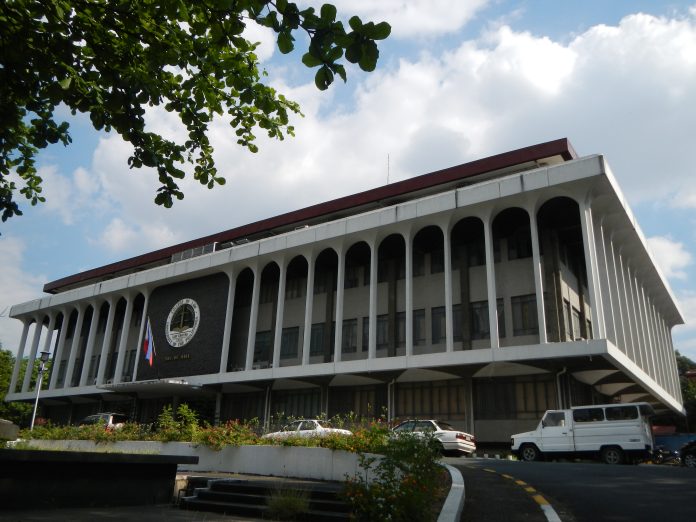As freshies in 1992 at the UP College of Law, the imposing words of Justice Oliver Wendell Holmes, Jr. welcomed us to Malcolm Hall: “The business of a law school is not sufficiently described when you merely say that it is to teach law or make lawyers. It is to teach law in the grand manner, and to make great lawyers.”
The UP College of Law was among the first seven Colleges established after the foundation of UP on June 18, 1908, through Act No.1870.
UP Law has its fine share in Philippine history as it produced four presidents namely Jose Laurel, Manuel Roxas, Elpidio Quirino, and Ferdinand Marcos, aside from at least 22 senators. Fourteen out of the 27 Supreme Court chief justices are from UP Law.
With excitement and trepidation, we pursued the dream of becoming (great) lawyers.
Traversing the path of legal education was hard to the exponential power, as we immersed ourselves in law books and cases, faced terror professors, pore through volumes and pages of SCRAs, lined up for photocopying at the law library, hurried through classes, reviewed and crammed through lessons, and survived recitations.
The seating arrangement was chosen purposely based on one’s affiliation with friends and case pool mates, by luck or by time of arrival during the first day of classes. The seat plan was strategically optimized to source much-needed information during recitations either through infamous television (codigos) or radio (bulong squad).
Magic notes provide the psychological crutch to lean on and assures one’s sense of security. It is a compilation of lectures, explanations, questions and answers given in a class by a professor on a particular subject.
Encounters with law professors during the dreaded recitations involved answers that range from direct lifting from the SCRAs “in the original,” for those who studied, to inventions through guess work for those who didn’t. Despite the torture, most of the memorable moments in law school were funny blunders during class recitations.
Passing the bar exams is obviously not that easy and seems to be the crowning glory of a student’s life.
The bar exams is considered one of the toughest and most difficult among the professional board exams, having one of the highest mortality rate.
It is also a yearly spectacle on the performance of law schools measured on the most number of topnotchers or scoring the highest passing rate.
Eight members of my batch landed as topnotchers: Trina Prodigalidad (1st, 90.6); Recaredo Borgonia Jr. (4th, 89.65); Shirley Alinea (6th, 89.45); Yasmin Suzette Tan (7th, 89.4); Rosalia Bartolome (8th, 89.3), Amor Datinguinoo (9th 89.15); and Edgar Bernal (10th, 89.0); for the 1996 bar exam while Teodulo San Juan (7th, 87.775) for the 1997 bar exam.
A team of batchmates, including the late CHR chief Chito Gascon, won the country’s first ever Jessup International Cup in 1995 held in New York.
One of the remarkable aspects of the law field is that people attend law school with a vast array of interests and experiences and go on to pursue an equally wide variety of careers.
Batch 1996 produced academicians, judges, private and public sector lawyers, government officials, politicians and all types of business professionals across industries.
I entered UP Law in 1992, but I took the bar in 1998. I opted to be a working student, and I attended classes at night. As a reporter for major news outfits, I would make my coverage starting 9:00 a.m, until 4:00 p.m. then rush to UP for my evening classes. I would read my cases while inside the moving bus from Diliman to Las Pinas under the strongest light source.
Lawyers, as professionals, are expected to uphold the ethical and moral values that are said to be essential to the fabric that holds society together.
“Serve the people. Do not betray your humanity,” says my professor and Supreme Court Associate Justice Marvic Leonen. “Discover your passion. Be patient and compassionate.”
Passion for the law is dedication to do what is right.
Indeed, it was a long road, but it was also a well-traveled and fun-filled journey.
We never imagined that, beyond the legal discipline, the batch proved to be a repository of undiminished talents.
Nostalgic thoughts are evoked down memory lane.
Law school years were indeed difficult moments, but the best and memorable times spent with those who shared the experience. Those years were full of vivid memories that still bring smiles and funny thoughts to each one, many years hence.
It’s been a couple of decades when we left the gates of UP Law but somehow we still get the sense of continuity, a “vinculum” unsevered by the years we may have all been apart.
For UP Law Batch 1996 “Pagbabalik” after 25 years is more than just reminiscing the yesteryears but imbibing that forward-looking attitude, the prospectivity of hope amidst all that we have gone through.
Dennis R. Gorecho heads the seafarers’ division of the Sapalo Velez Bundang Bulilan law offices. For comments, email [email protected], or call 09175025808 or 09088665786









